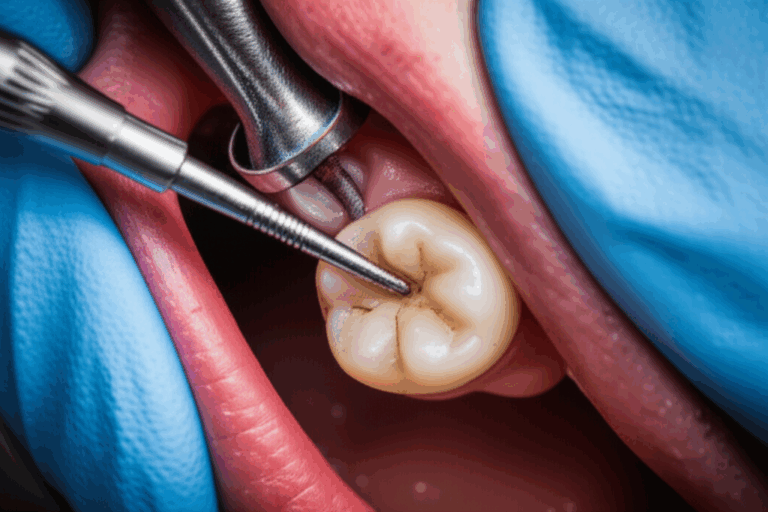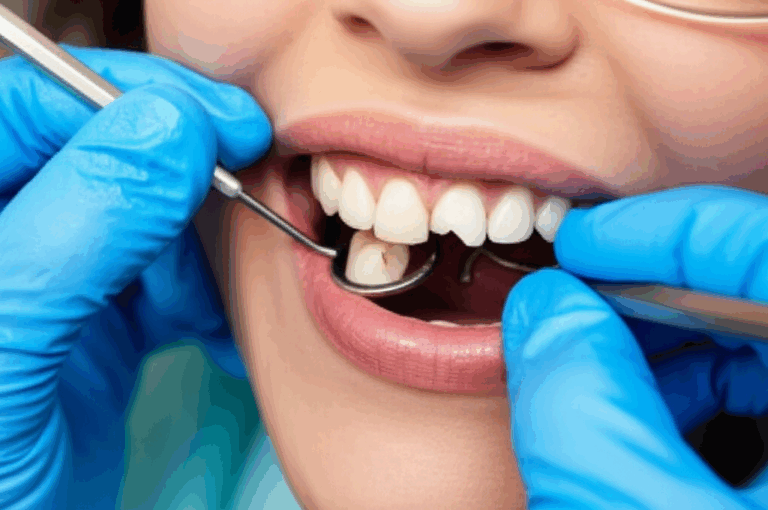
Can a Dentist Drop You as a Patient? My Honest Experience and What You Need to Know
Table of Contents
2.1 Not Following Treatment
2.2 Money Problems
2.3 Bad or Mean Behavior
2.4 Safety and Trust Issues
2.5 Practice Changes
3.1 What Is Patient Abandonment?
3.2 How Dentists Should Let a Patient Go
3.3 State Rules and ADA Guidelines
1. Introduction: The Short Answer
People often ask, “Can my dentist just stop seeing me?” The short answer is yes. A dentist can tell you they won’t see you anymore, but there are strict rules about how and why this can happen. It’s not usually personal, and it doesn’t happen out of nowhere or for no reason.
I’ve had my own worries about dental care. Sometimes I was a worried patient too. But after learning more, I found that understanding both sides really helps everyone feel better. Dentists have work rules and things they must do, but as patients, we also have our own rights. Knowing these helped me avoid problems and worry.
This article will explain why a dentist might stop seeing a patient, what rules they have to follow, what your rights are, and what you can do if it happens to you.
2. Why Dentists Sometimes Dismiss Patients
If you worry your dentist might stop seeing you, you’re not alone. It usually happens for a few key reasons. Let’s look at each one with some real stories and examples.
2.1 Not Following Treatment
This is a big one, and I’ve seen both sides. Sometimes, patients miss too many appointments or ignore their dentist’s tips about how to take care of their teeth. Missing lots of appointments messes up a dentist’s whole day, and not doing what the dentist asks makes it hard for them to help you.
For example, I once avoided wearing a night guard (yes, I grind my teeth). My dentist reminded me a few times, and after missing some follow-ups, I got a warning. Dentists need to protect themselves, but patients need to do their part too.
Usual reasons a dentist might stop seeing you here:
- Missing or cancelling appointments too many times
- Refusing really important treatments
- Not following care instructions even after reminders
- Not brushing or flossing even after being told how
2.2 Money Problems
Dental care can be pricey, and insurance doesn’t always pay for everything. Still, if you don’t pay your bills, keep owing money, or try to avoid paying for things already done, this can get you dropped.
Most dental offices clearly say how they want to be paid. When I had a bill mistake, talking to the office calmly really helped. Don’t wait for a “final notice”—just ask for help.
Some things that can make a dentist stop seeing you:
- Not paying your bills after lots of reminders
- Refusing to pay for finished work
- Doing anything tricky with insurance
2.3 Bad or Mean Behavior
This one’s pretty clear: everyone should be respectful. Dental staff deserve to work without being yelled at or threatened. One time, I overheard a patient yelling and scaring the front desk worker. The dentist stood up for her team and asked the patient not to come again for everyone’s safety.
Things that can get you dropped:
- Yelling or threatening staff or the dentist
- Trying to scare or hurt people
- Making crazy or mean demands that mess up the office
2.4 Safety and Trust Issues
Sometimes things just aren’t working. Maybe you and your dentist don’t trust each other anymore. Maybe your dental problems are too serious for a regular dentist. Sometimes, dentists want to send you to a specialist, like for special dental ceramics lab work. Or maybe it’s for safety reasons, like during a sickness outbreak. Once, I had a dentist who thought I’d do better somewhere else, and looking back, it was the right choice.
These things can play a part:
- Can’t trust each other or always arguing
- Your health needs are too much for your dentist
- You don’t follow safety rules in the clinic
2.5 Practice Changes
Sometimes it really isn’t about you. Dentists retire, move away, pick a new job, or change which insurance they take. When my childhood dentist closed his office, everybody had to find a new one—even his favorite patients.
What matters most is how they help you to move on. Did they give you enough time? Did they help you find someone new? Did they offer to transfer your records easily?
Some reasons:
- Dentist retires, closes, or moves
- Dentist stops working with certain groups (like kids)
- Dentist stops taking your insurance
3. The Rules for Letting a Patient Go
Let’s clear something up—dentists can’t just “disappear” on you. There are rules to protect both the dentist and the patient.
3.1 What Is Patient Abandonment?
Patient abandonment is a term you might hear. It means leaving a patient with no chance to finish needed treatment, with no warning. This is not just bad manners; in some cases it’s actually against the law.
A dentist must give you a warning and a chance to find another dentist before stopping care, especially if you’re in the middle of something important.
3.2 How Dentists Should Let a Patient Go
Here’s what is supposed to happen—I went through this myself and learned each step:
Step 1: Written Notice
Your dentist should give you a letter (or sometimes an email) with the reason they’re letting you go. This letter becomes part of your medical record.
Step 2: Enough Time
You should get enough time (usually 30 days or more) to find a new dentist. They can’t just send you away the next day unless you did something really bad (like violence).
Step 3: Emergency Help
If you have a dental emergency during your notice period, your dentist should still help you until your time is up.
Step 4: Help Finding a New Dentist
Many dentists will help you find another office or give you some suggestions. My last dentist gave me a list and told me how to get my records sent over.
Step 5: Sending Your Records
You need your records to keep up with your care. The old dentist has to give them to you when you ask—even if you still owe money. You have a legal right to your records.
3.3 State Rules and ADA Guidelines
States have their own rules (set by the State Dental Board), but most follow the ADA (American Dental Association). This lets dentists choose their patients, but says they can’t just leave you without help. Dentists who don’t follow these steps can get into trouble or even lose their license.
4. Your Rights as a Dental Patient
When I learned dentists could drop patients, I worried about my rights too. Here are some important protections you have:
- Right to Written Notice and Reason: You should get a clear letter or email.
- Right to Emergency Care During Notice Time: Dentists can’t refuse real emergency care until the notice period ends.
- Right to Your Dental Records: You get to have and send your records—even if you owe money.
- Right to a Second Opinion: You always can see another dentist for advice.
- Right to File a Complaint: If you think your dentist left you in a bad spot, you can talk to the State Dental Board.
And don’t forget—dentists can’t drop you for illegal reasons (like your race, religion, or disability).
5. What to Do If Your Dentist Drops You
If you get a letter saying your dentist won’t see you, don’t freak out. I’ve seen it happen, and getting upset doesn’t help. Here’s what to do:
Call the office and politely ask for the real reason if you don’t know. Lots of things can be fixed if you just talk about it.
Ask right away for your records so your new dentist will get them in time.
Call your insurance or look up dental offices nearby. If you have special needs—like night guards or fancy dental work—finding a china dental lab working with your new dentist can help your switch go more smoothly.
If money is the issue, try to pay what you can or set up a payment plan. If it was because of your actions, think about what happened so you don’t repeat it.
If you think the dentist acted really poorly (like dropping you in the middle of a painful procedure), talk to your State Dental Board.
6. How to Have a Good Dentist-Patient Relationship
Now some good news: most people never get dropped. Over time, I learned that a little respect and teamwork goes a long way.
Here’s what works:
- Show Up (and Give a Heads Up if You Can’t)
Try not to miss visits. If you really can’t go, call the office. Dentists need to know.
- Talk Openly
Ask questions if you’re confused about your treatment. Dentists like when you care about your own teeth, and this helps avoid problems.
- Follow Hygiene Tips
Even if it sounds simple, brushing and flossing matters. Stick to your cleanings—your dentist will notice if you don’t.
- Be Nice
Kindness to the staff is huge. They’ll remember you for the right reasons.
- Work On Your Bills
If you can’t pay right away, talk about a plan.
- Follow Treatment Advice
Dentists know a lot, but your part at home is important too.
By doing these things, you have a lot of control over whether you and your dentist stay a team.
7. Conclusion: Handling Dentist-Patient Relationships
Being dropped by a dentist doesn’t happen much, but it happened to me once, so I know how strange and stressful it feels. What I learned is that a good relationship with your dentist depends on talking, trust, respect, and doing your part.
If you’re ever worried about where you stand, just ask. Most dentists want to help you rather than lose you. And if you do get dropped, knowing the rules and your rights can help you get back on track.
Take care of your teeth, keep asking questions, and enjoy your checkups. You have more control in this relationship than you may think. Your dentist should help you stay healthy. And if you ever need special help, good teams like a crown and bridge lab can be an important part of your journey.
If you stay active and learn, you’re set for healthy and respectful dentist-patient relationships. That makes all the difference.
If this helped you, you can read more about how dentists and china dental labs work together to give great care—there’s always more to know when it comes to looking after your teeth!








